Client Relationship Building: How to Build Strong Relationships Through Appointments and Turn Every Meeting into a Relationship Builder
This article explores the often-overlooked relationship-building power of appointments, the missed opportunities when client interactions aren’t personalised, and why intentional communication before, during, and after meetings is essential for long-term loyalty. We’ll also introduce how simple improvements in appointment booking, reminders, and follow-ups—supported by smart scheduling tools—can help businesses turn every meeting into a meaningful relationship builder.

Introduction
In today’s competitive service landscape, appointments are more than just scheduled interactions—they’re pivotal touchpoints that shape your clients’ perception of your brand. Each appointment offers a unique opportunity to build trust, deliver value, and foster loyalty that extends beyond a single transaction. By offering personalized experiences during these interactions, you can build meaningful relationships with your clients that enhance satisfaction and long-term loyalty.
Why is this so crucial? Because acquiring a new customer can be significantly more expensive than retaining an existing one. Research shows that acquiring a new customer can cost five to twenty-five times more than keeping an existing one (Harvard Business Review). Moreover, increasing customer retention rates by just 5% can boost profits by 25% to 95% (Bain & Company).
Appointments play a vital role in increasing Customer Lifetime Value (CLV)—the total worth of a client’s relationship with your business over time. By providing personalised and seamless experiences during appointments, companies and businesses benefit from building loyalty that drives repeat bookings, higher spending, and more referrals. Strong customer relationships and a positive customer experience directly contribute to improved business performance, making retention strategies even more valuable. Additionally, focusing on these strategies helps foster customer loyalty, which is essential for long-term retention and generating word-of-mouth referrals.
But how can you ensure every appointment becomes a relationship builder rather than a missed opportunity? In this article, we’ll share practical, research-backed strategies designed to enhance customer relationships and deliver an outstanding customer experience, helping your team turn clients into loyal advocates.
1. Make Booking Effortless and Clear
A clunky booking process is often the first barrier to building trust with potential clients. When scheduling feels difficult or unclear, it can raise doubts about the reliability of the brand itself. On the other hand, an easy and effortless booking experience immediately signals professionalism, transparency, and care—qualities clients look for in both a brand and a consultation. Using appointment scheduling software can streamline the process, making it simple for clients to book appointments and helping your business consistently meet or exceed customer expectations. Making booking appointments straightforward and visible encourages more clients to engage and reduces friction in the customer journey.
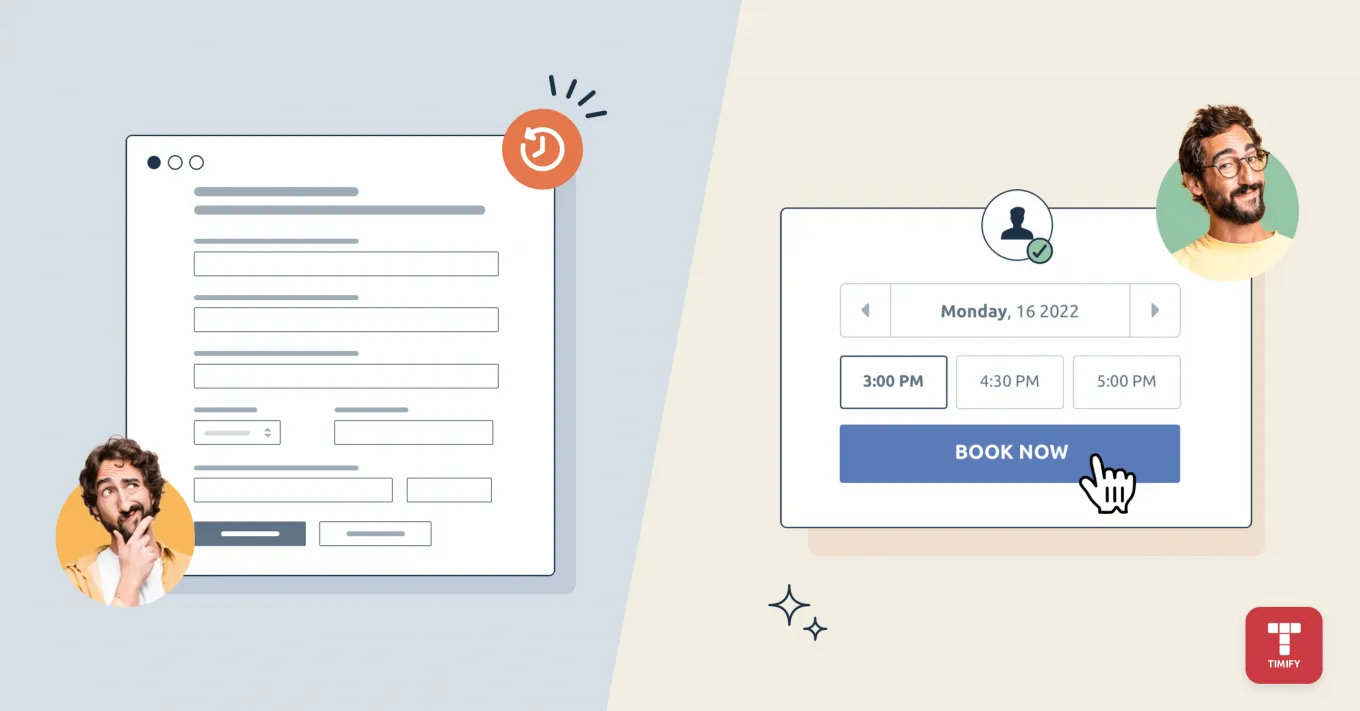
Effortless means making the option to book visible and accessible wherever the client encounters your business: directly on Google, via Facebook or Instagram, or prominently on your website. Offering multiple ways to schedule appointments helps align with customer expectations and ensures clients can book in the way that suits them best. Tracking and analyzing booking appointments across these channels can also help optimize your conversion rates.
Once they start the process of scheduling appointments, it should be straightforward and fast, with an instant confirmation that shows you prioritize clear, timely communication. Adding practical details—like where the appointment takes place, directions, parking info, or what to bring—further reassures clients and sets the tone for a confident, well-prepared visit. Right from the start, they get a sense of being in good hands.
Including buffer time between appointments is also important to prevent overlaps, accommodate unexpected delays, and ensure a smooth experience for both your team and your clients.
Sounds Interesting?
Try TIMIFY for free to see how our solution can support you.
2. Gather Customer Data and Insights Before the Appointment
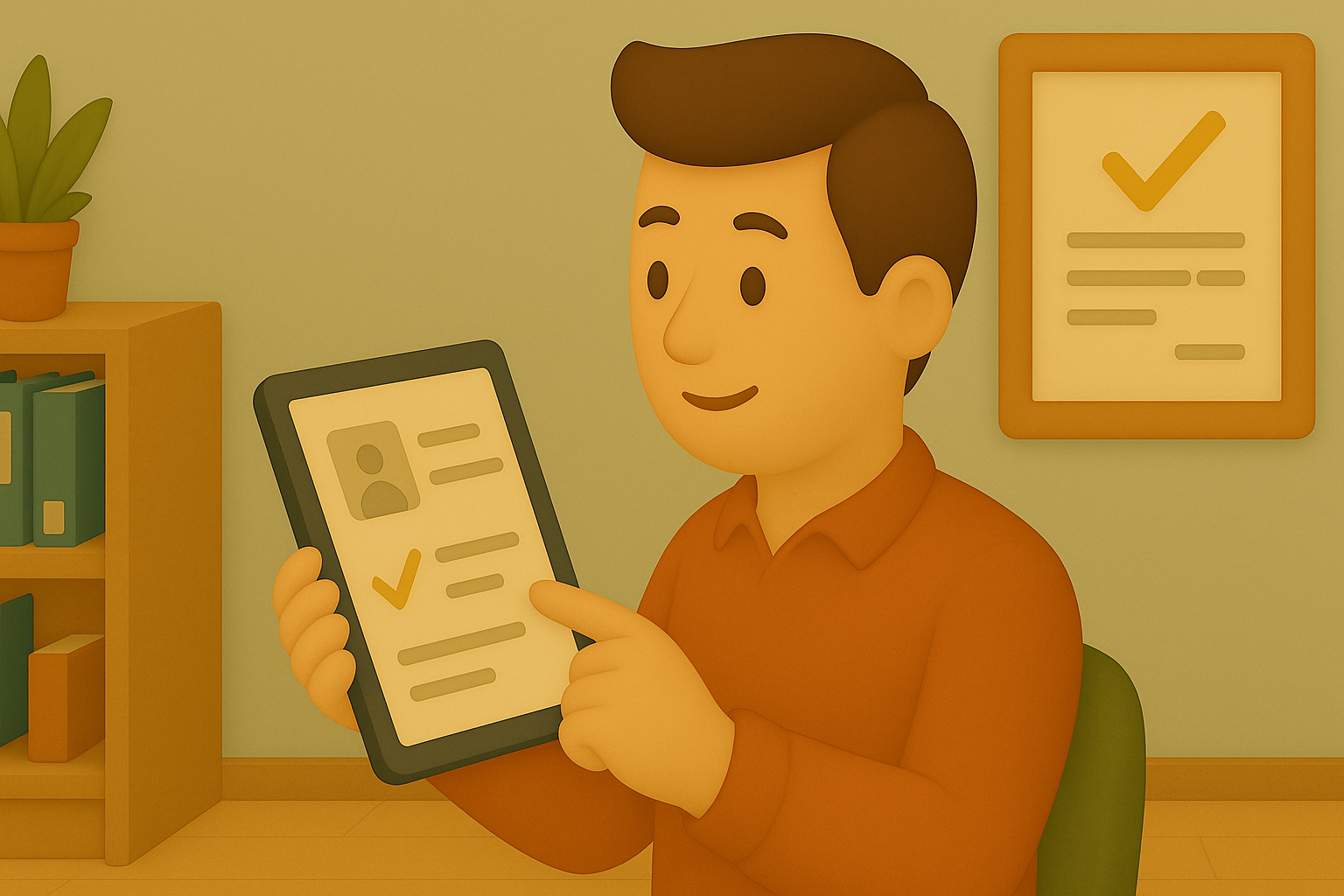
To build a meaningful and long-lasting client relationship, it’s essential to gather as much relevant information as possible—ideally before the appointment even begins. The more you know about a client’s background, expectations, or past interactions as a lead or among your leads, the better prepared you are to deliver a truly personalized and thoughtful experience. Leveraging customer data enables you to create personalized interactions by tailoring communication and support to each individual’s needs. And when clients realize that you’ve remembered their input and come prepared, it immediately builds trust and makes them feel genuinely understood.
Imagine this: A customer books a follow-up appointment at your hair salon 6 months after receiving a hair coloring treatment. In scenario A, the consultant asks, “So, what brings you in today?”—clearly unaware of the client’s history or preferences. In contrast, with a smart booking software, the consultant begins with: “Last time you chose a hair coloring - how has that worked out for you?” Suddenly, the conversation feels personal, helpful, and professional. The client sees that they’re not just another time slot—they’re remembered.
Giving clients the ability to flag issues, upload documents, or describe concerns in advance—such as sharing their interests or business goals—e.g. through a smart booking form means your team can prepare accordingly. Whether it’s bringing the right tools, doing some quick research, or simply being mentally ready, it all contributes to a smoother, more impactful appointment—and a stronger client relationship from the very beginning.
3. Nurture Customer Relationship with Proactive Reminders
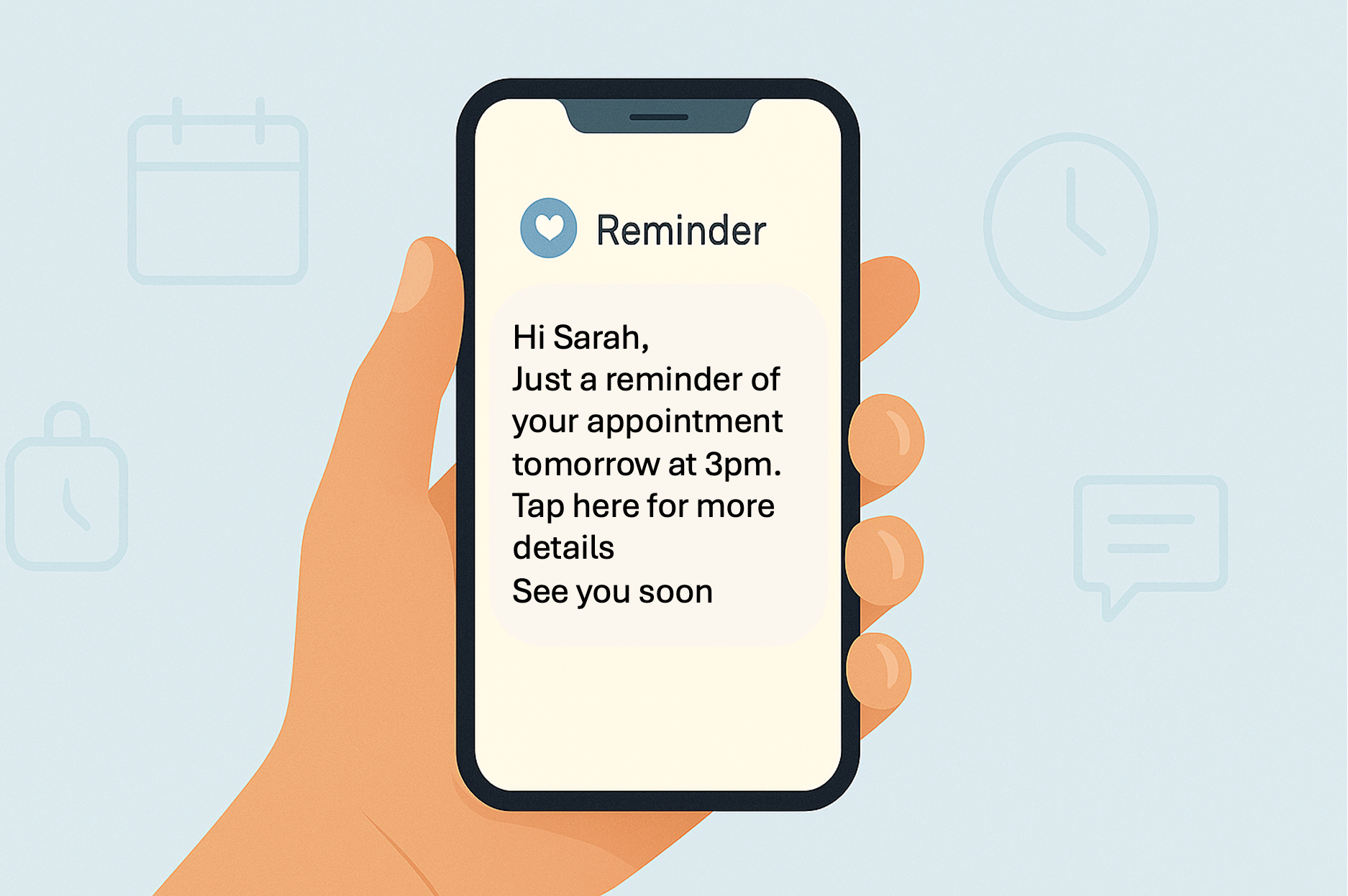
Confirmation emails are only the start of building thoughtful communications. Automated reminders, delivered by email, text message, or even a messaging app, not only help inform customers and reduce no-shows but also strengthen clients’ trust in your reliability. To maximize engagement, send automated reminders during business hours when clients are most likely to respond. These messages can be more than simple notifications—they’re an opportunity to include a warm note, share answers to FAQs, or offer practical advice to help clients prepare for their appointment. For email reminders, craft a clear and engaging subject line to increase open rates. Keep your reminder messages to the point for clarity and effectiveness. After sending reminders, use follow-up emails and phone calls to reach customers and maintain engagement.
Integrating phone and phone calls as part of your communication strategy can help build personal connections and allow for direct scheduling or outreach. However, not every team has the capacity or time to be on the phone to remind customers about their booked appointments. Phone Bots can be a cheap yet personal alternative.
When clients receive clear and friendly reminders, it shows that your business is both proactive and well-organised, helping to keep customers engaged and looking forward to their appointment.
4. Turn Booking Details into a Warm Welcome
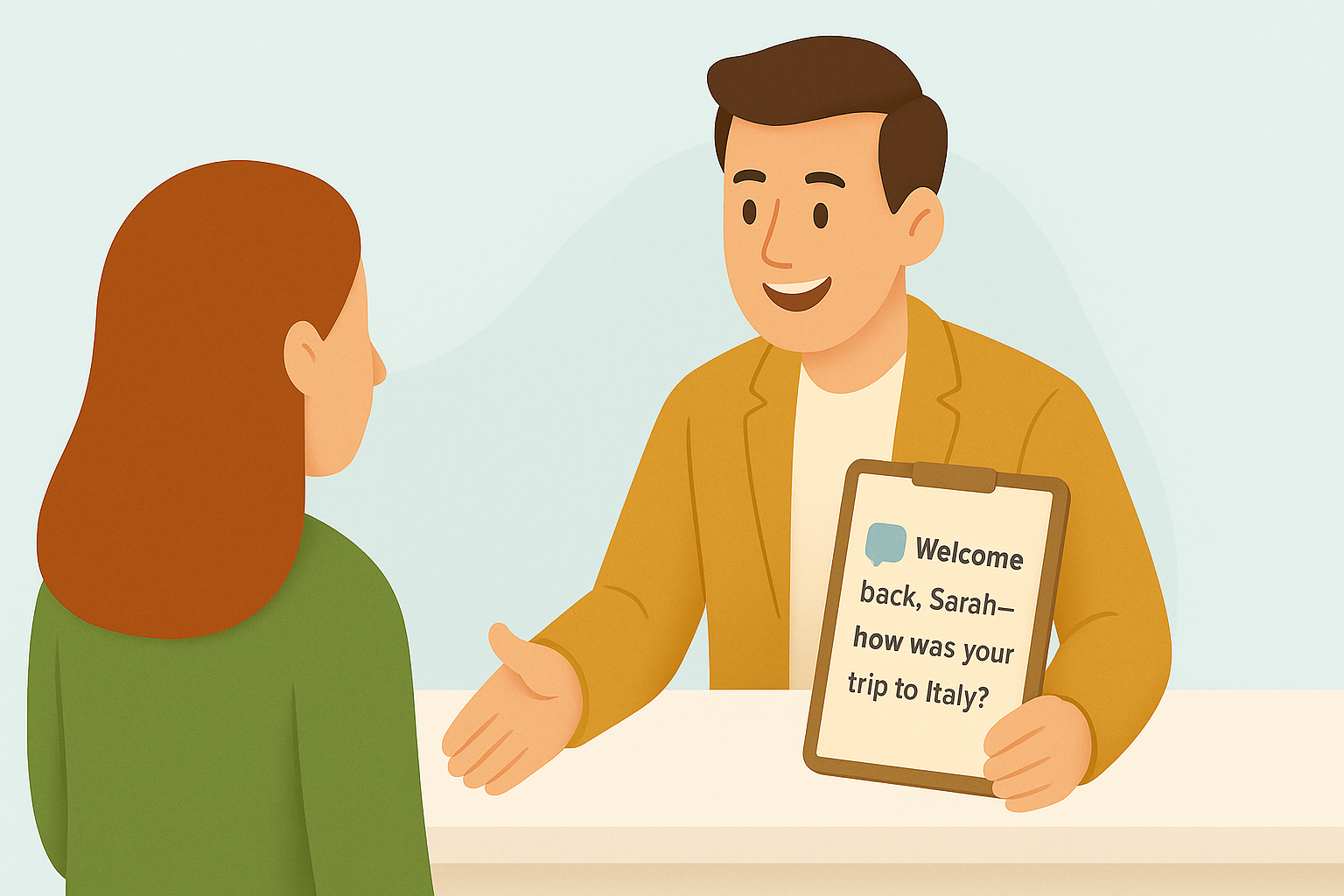
When the appointment begins, all the information you collected during the booking process becomes a powerful tool for building connection. Greet clients by name and reference the details they shared – whether it’s the purpose of their visit, their preferences, or any special requests. Make sure to show you understand the client's needs and preferences. A simple acknowledgement of what you already know about them creates an immediate sense of familiarity and reassurance, helping to establish a personal connection. It shows you’ve prepared thoughtfully and that their experience matters to you.
Throughout the appointment, continue demonstrating genuine interest by asking clarifying questions and confirming you understand the client's goals. Respect the client's personal time and acknowledge their busy schedule by being punctual and efficient in your communication. Offer video meetings as a convenient option to accommodate their preferences and availability. When discussing your services, be proactive and offer solutions tailored to their needs. Strive to exceed expectations by delivering exceptional service and attention to detail.
Gather feedback from other clients to continually improve your approach and enhance customer experiences. When clients see that you’ve not only remembered but acted on their input, it builds trust and makes them feel respected and valued. A personalised, attentive experience like this is what turns one single visit into the start of a lasting relationship, ensuring customers feel valued from the moment they arrive.
5. Follow Up to Keep the Connection Alive and Improve Customer Retention
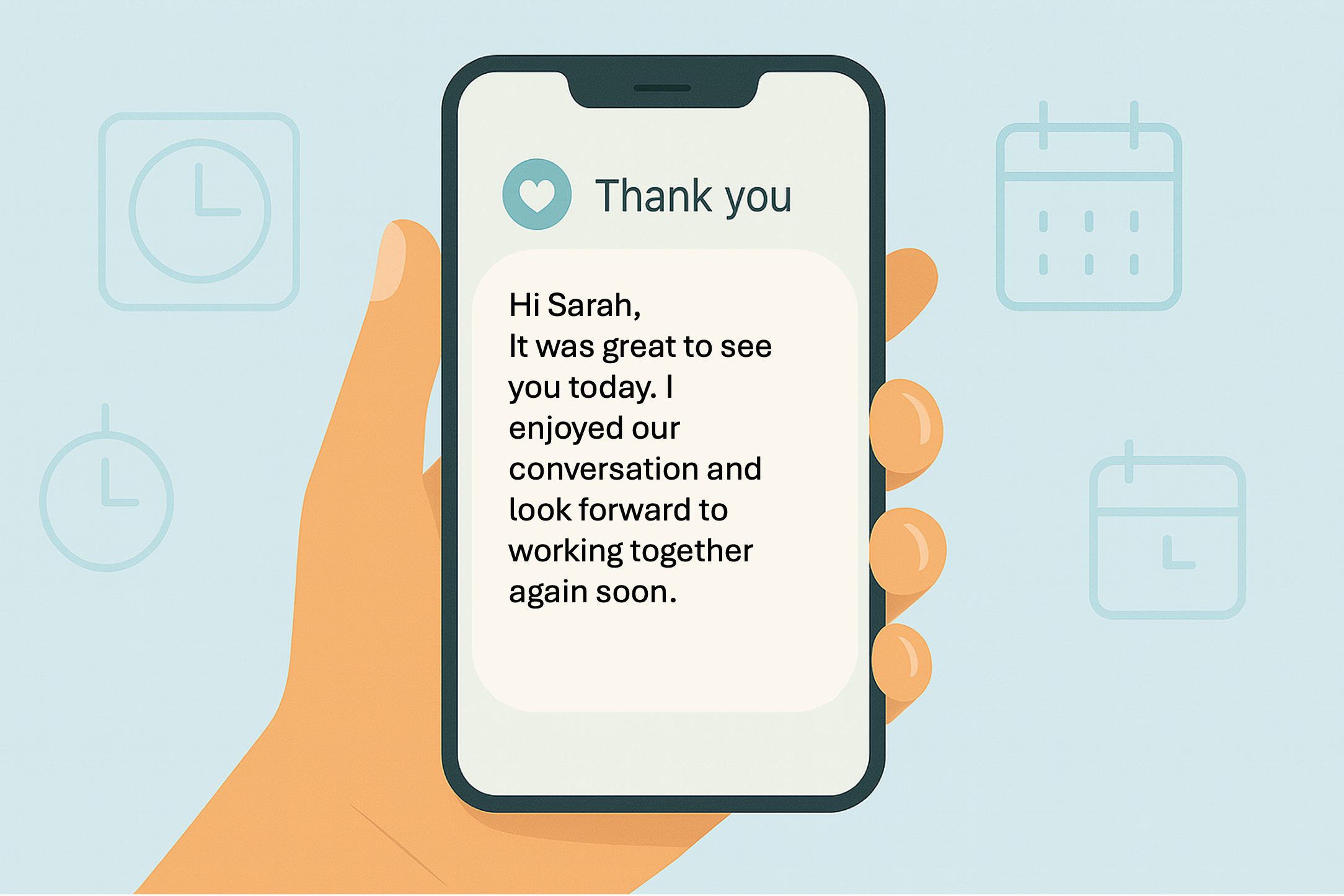
Relationship-building and customer retention don’t end when the appointment is over. Following up promptly to confirm the next appointment and encourage more appointments is essential for keeping the connection alive.
Effective follow-up helps manage customer appointments, maintain organized schedules, and ensures you are consistently scheduling meetings that drive ongoing engagement. Appointment setting plays a key role in maintaining and strengthening relationships, as it allows sales teams and sales professionals to stay top-of-mind with clients.
Outreach methods such as a well-timed cold call can also be effective for re-engagement. For example, send a personalized thank-you message after an appointment, ask for feedback to identify areas for improvement, and offer relevant information or a tailored offer. These actions help build strong relationships and foster loyalty.
Follow-up has a key role in building strong relationships, which leads to increased loyalty, repeat business, and referrals. Consistent follow-up makes sense because it not only supports retention but also helps you identify areas where your service can improve, ultimately strengthening your client relationships.
Conclusion
Building strong client relationships doesn’t happen by accident—it’s the result of consistently thoughtful experiences before, during, and after each appointment. When you make booking effortless, gather insights in advance, communicate proactively, create personal connections in person, and follow up with care, you turn every appointment into an opportunity for loyalty and trust. By applying these strategies and using the right tools to support them, you’ll show clients that they’re valued every step of the way.
Want to see TIMIFY in Action?
Get in touch with our team to explore how TIMIFY boosts your client relationship.
Frequently Asked Questions (FAQ)
Why are appointments so important for building client relationships?
What customer data should I gather before an appointment?
How can I use appointment booking details to build rapport with clients?
How can I make my appointment booking process more effective?
How do proactive reminders enhance client relationships?
Why is following up after an appointment important for customer retention?

About the author
Kimon Gerhard
Kimon is currently pursuing a degree in Business & Economics at WU Vienna, he has been part of TIMIFY for over a year as a Working Student. His focus lies primarily on Sales, Partnerships (Business Development), and more recently, Marketing. In his role, he carries out market research, reaches out to potential partners or sales leads, and contributes to marketing initiatives that strengthen TIMIFY’s position as a leading SaaS solution for scheduling and resource management.
Related articles



